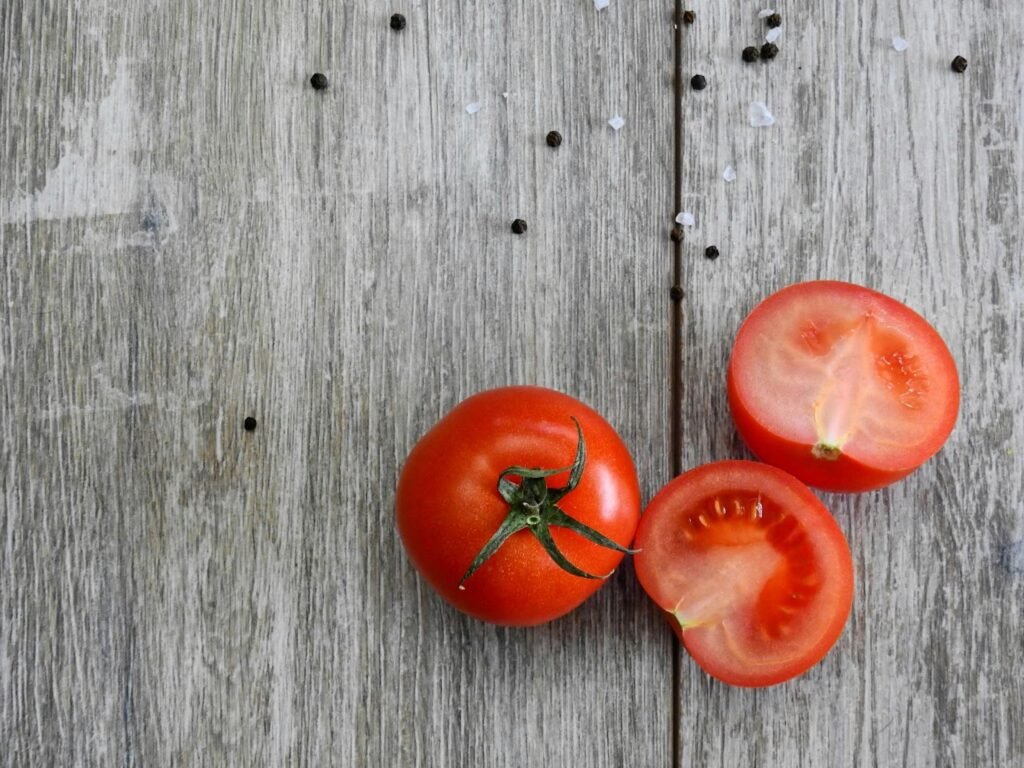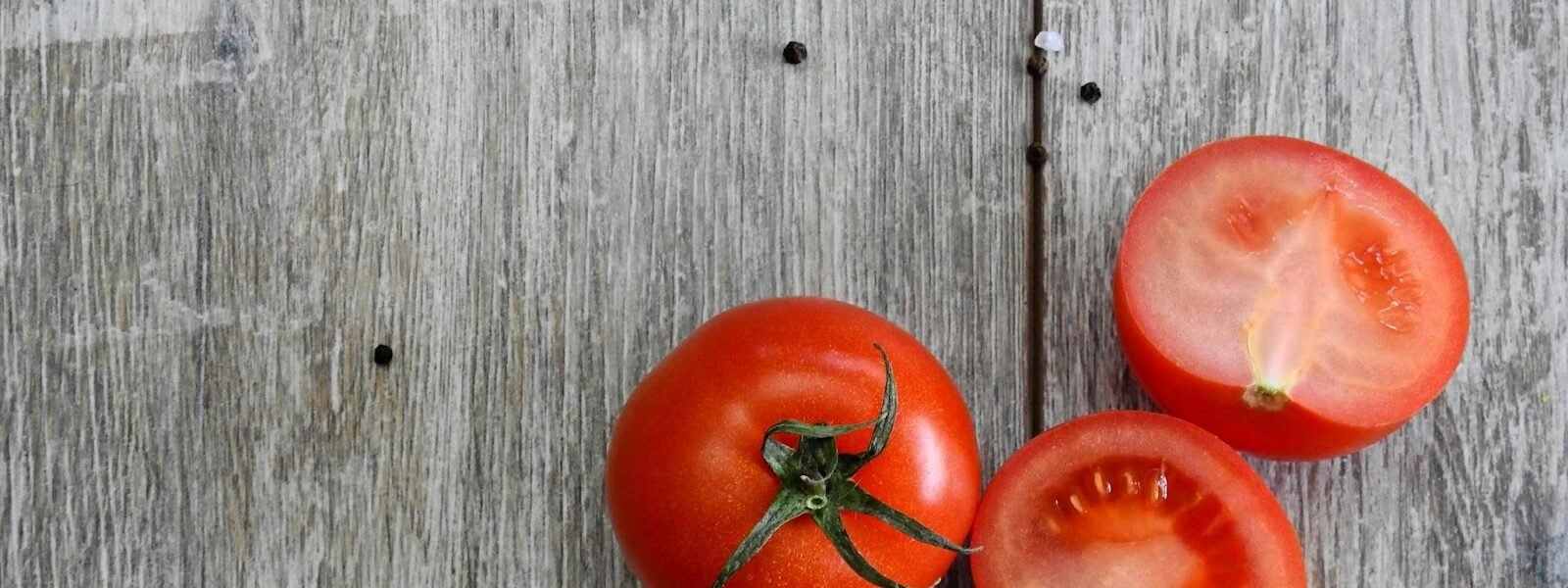Introduction
Tomatoes, a vibrant and versatile fruit, are a staple in many human diets. But can dogs safely enjoy this juicy treat? The short answer is: it depends. While tomatoes themselves are generally safe for dogs in moderation, there’s a specific part you need to avoid. Let’s delve into the details.

Understanding the Toxic Component
The toxic part of a tomato plant is the stem, leaves, and unripe fruit. These contain a substance called tomatine, which can cause digestive upset in dogs. However, ripe, red tomatoes are generally safe for dogs to consume in small quantities.
Why Are Ripe Tomatoes Safe?
As tomatoes ripen, the tomatine content decreases significantly. This is why ripe, red tomatoes are considered safe for dogs. However, it’s important to note that excessive consumption can still lead to digestive issues.
Signs of Tomato Poisoning
If your dog has consumed toxic parts of a tomato plant or excessive amounts of ripe tomatoes, they may exhibit the following symptoms:
- Vomiting
- Diarrhea
- Lethargy
- Loss of appetite
- Abdominal pain
If you suspect your dog has ingested tomato poison, it’s essential to contact your veterinarian immediately. They can provide appropriate advice and treatment.
Safe Alternatives to Tomatoes
While ripe tomatoes can be enjoyed by dogs in moderation, there are many other safe and delicious fruits and vegetables that you can share with your furry friend. Some healthy alternatives include:
- Apples (without the core or seeds)
- Bananas
- Blueberries
- Carrots
- Cucumbers
- Green beans
- Peas
- Pumpkin (pureed)
- Spinach (cooked)
- Strawberries
Frequently Asked Questions About Tomatoes and Dogs
Can dogs eat tomato soup?
While tomato soup is generally safe for dogs, it’s best to avoid canned varieties that contain high levels of sodium and preservatives. Opt for homemade or store-bought versions with minimal added ingredients.
Can dogs eat cherry tomatoes?
Yes, cherry tomatoes are okay for dogs to consume in moderation. However, be cautious of the stems and leaves.
Is tomato sauce safe for dogs?
Tomato sauce can be safe for dogs, but it’s important to choose varieties without added seasonings or preservatives. Avoid sauces with high levels of garlic or onion, as these ingredients can be toxic to dogs.
Can dogs eat canned tomatoes?
Canned tomatoes can be safe for dogs, but it’s important to check the labels for added ingredients like salt, sugar, and preservatives. Opt for plain, canned tomatoes without any seasonings.
Can dogs eat dried tomatoes?
Dried tomatoes can be safe for dogs in moderation, but they are often high in sodium. Choose dried tomatoes without added salt or preservatives.
Can dogs eat tomato paste?
Tomato paste is generally safe for dogs in small quantities. However, it’s important to choose varieties without added preservatives or seasonings.
Is tomato juice safe for dogs?
Tomato juice can be safe for dogs, but it’s best to opt for unsweetened varieties without added preservatives or seasonings. Excessive consumption can lead to digestive upset.
Can dogs eat tomato plants?
No, dogs should not eat tomato plants. The stems, leaves, and unripe fruit contain tomatine, which is toxic to dogs.
Can dogs eat tomato leaves?
Tomato leaves are toxic to dogs and should be avoided. They contain tomatine, which can cause digestive upset.
Can dogs eat tomato sauce with meat?
Tomato sauce with meat can be safe for dogs, but it’s important to choose varieties without added preservatives, seasonings, or garlic and onion.
Can dogs eat tomato soup with noodles?
Tomato soup with noodles can be safe for dogs, but it’s important to choose varieties without added preservatives, seasonings, or excessive amounts of sodium.
Can dogs eat tomato salad?
Tomato salad can be safe for dogs, but it’s important to avoid varieties with added dressings or seasonings that contain garlic or onion.
Can dogs eat tomato ketchup?
Tomato ketchup is generally safe for dogs in small quantities. However, it’s important to choose varieties without added preservatives, seasonings, or excessive amounts of sugar.
Can dogs eat tomato sauce with pasta?
Tomato sauce with pasta can be safe for dogs, but it’s important to choose varieties without added preservatives, seasonings, or excessive amounts of sodium.
Can dogs eat tomato soup with rice?
Tomato soup with rice can be safe for dogs, but it’s important to choose varieties without added preservatives, seasonings, or excessive amounts of sodium.
Can dogs eat tomato plants with flowers?
Yes, tomato plants with flowers are also toxic to dogs. The entire plant, including the flowers, contains tomatine.
Can dogs eat tomato plants with green fruits?
Yes, tomato plants with green fruits are also toxic to dogs. The unripe fruit contains tomatine.
Can dogs eat tomato plants with ripe fruits?
While ripe tomatoes are generally safe for dogs in moderation, it’s still best to avoid the stems, leaves, and unripe fruits of the tomato plant.
Can dogs eat tomato plants with vines?
Yes, tomato plants with vines are also toxic to dogs. The vines contain tomatine.
Can dogs eat tomato plants with roots?
Yes, tomato plants with roots are also toxic to dogs. The roots contain tomatine.
Can dogs eat tomato plants that have been sprayed with pesticides?
Yes, tomato plants that have been sprayed with pesticides can be harmful to dogs. Pesticides can cause various health problems, including vomiting, diarrhea, and seizures.
Can dogs eat tomato plants that have been fertilized?
While excessive fertilizer can cause digestive upset in dogs, moderate amounts are generally safe. However, it’s best to avoid over-fertilizing your tomato plants.
Can dogs eat tomato plants that have been treated with fungicides?
Fungicides can be harmful to dogs if ingested.
Conclusion
While ripe tomatoes are generally safe for dogs to consume in moderation, it’s crucial to be aware of the toxic parts of the plant. By understanding the risks and taking necessary precautions, you can ensure that your furry friend enjoys a healthy and happy life. Please always visit your veterinarian if you have any questions concerning the health or food of your dog.
To read more, click here.




